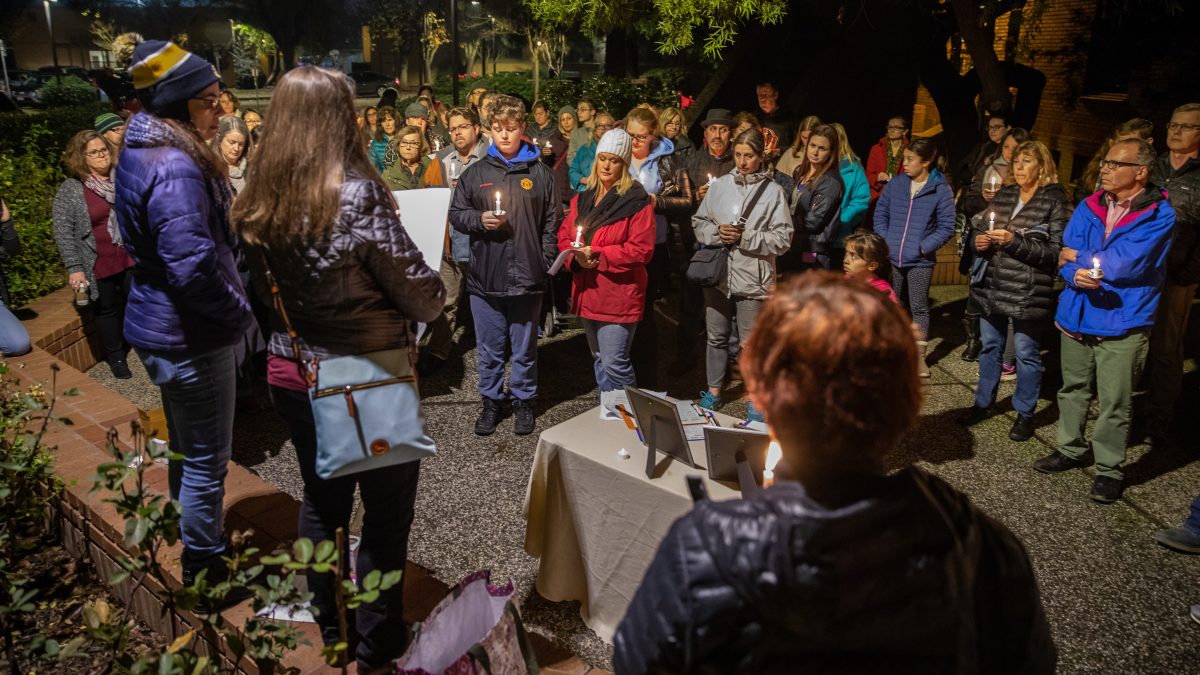 Parents, friends of the family and community members are demanding answers after a Davis teen, 13 year old Max Benson died on November 28 after he was subjected to a restraint by a teacher at privately-run Guiding Hands School in El Dorado Hills.
Parents, friends of the family and community members are demanding answers after a Davis teen, 13 year old Max Benson died on November 28 after he was subjected to a restraint by a teacher at privately-run Guiding Hands School in El Dorado Hills.
An attorney for the family put out a statement that “these private-for-profit schools are not directly accountable to the public they serve, but are merely on contract with the respective districts, putting students at grave risk.”
A family friend, who held a vigil spoke at public comment on Thursday night and noted that Max was sent to this school because of his special needs. She said that the school has been cited for violating state rules, but they are still open and have kids in their care.
“Max was restrained for an hour for kicking a wall,” she told the board. “He was a DJUSD student who sent to this school because our local district has no appropriate programs or classrooms for kids with autism who are not able to access their education in a traditional classroom.”
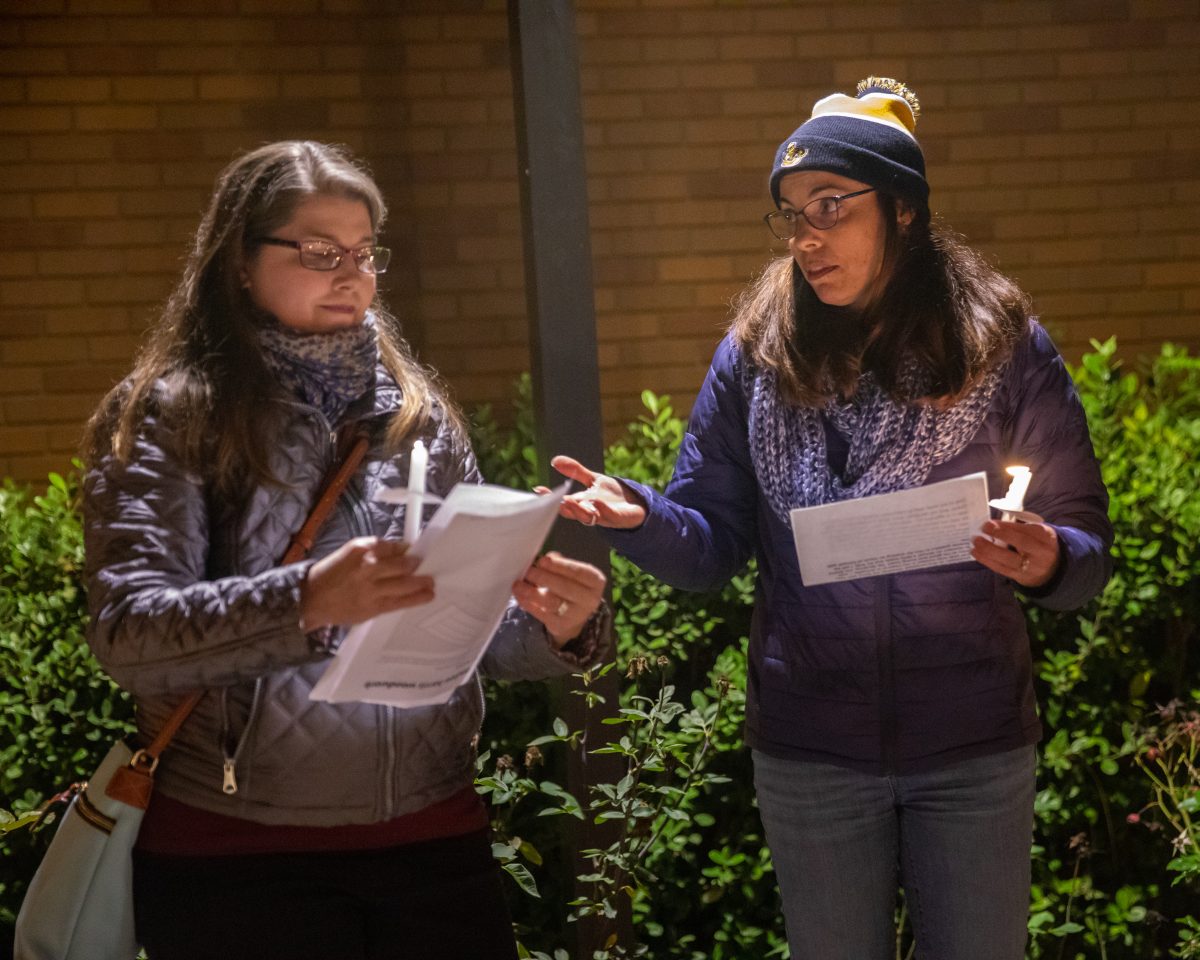 Seth Goldstein in a statement this week said, “Too few inspections and controls are imposed upon them by the school districts that place special needs children in the private school’s care.”
Seth Goldstein in a statement this week said, “Too few inspections and controls are imposed upon them by the school districts that place special needs children in the private school’s care.”
“Too few inspections and controls are imposed upon them by the school districts that place special needs children in the private school’s care,” said Mr. Goldstein, “California is acutely aware that the use of restraints and seclusion in educational settings is dangerous, ineffective and counterproductive. In the case of Max Benson, the State of California has failed to properly oversee these schools and the result has been-catastrophe.”
A preliminary investigation by the California Department of Education found the school violated multiple state rules in Max Benson’s death. Benson, who was 5ft 4 inches tall and about 230 Ibs, was allegedly subjected to a “neutral position” restraint hold by a Guiding Hands School teacher. Mr. Goldstein said that when this restraint is used it has been found to be deadly.
Mr. Goldstein said these “restraint” techniques are so dangerous and traumatizing that a number of states specifically outlaw or limit their use _and even the federal government has warned schools not to use them.
Max’s family was too overcome with grief to attend the candle light vigil outside of Community Chamber which drew at least 50 people – many of them friends of the family.
“The family wanted to be here tonight, but they’re still very deep into the grieving process and so it just wasn’t possible for them to come,” one of the speakers explained. “Their hope is that what happened to Max never happens again to another child in California and that no other family has to go through what this family had to go through.”
Lisa Wright has known the family for ten years. She said that one of her memories of Max was when he was in Kindergarten as was her kids, “Max was in a different K-1 class, than (her kids) and often he was let out before they were released. Almost everyday Max would find me outside the classroom and inevitably I would be the recipient of one of his infamous hugs.

“Life for all three kids wasn’t easy, particularly at school and somehow Max knew I needed his hugs before transitioning to the likely meltdown that was likely to occur in my house. I am convinced that kids like Max and Julia are far more attuned to the needs of people than one might assume spectrum kids are,” she said.
She said, “I was privy to his good and loving heart, his decency, and his desire to connect on almost a daily basis. For that I will be forever grateful for sharing himself with me.”
Jennifer, who organized the event, said that she was one of the lucky ones who got to see Max in some of his most relaxed moments. She would often see him walk the neighborhood with his mom and their dogs.
“The last time I saw him was only a few days before he left this world,” she said. “I always have to make a choice as to whether to stop and say hello assuming it will not interrupt a good moment or to just let it exist on his own.”
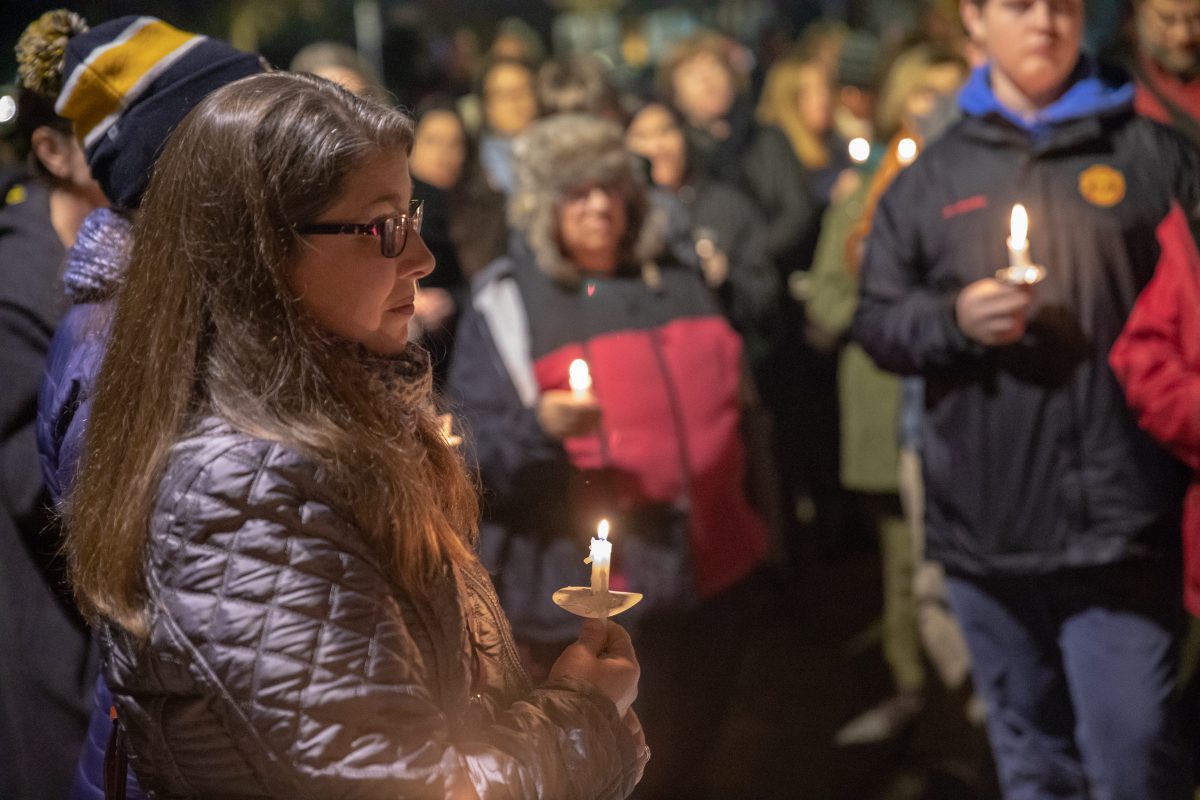 She has her own son with autism and felt a connection with the family going through similar challenges. “They live just seven houses away. My world became less lonely just from that perspective,” she explained.
She has her own son with autism and felt a connection with the family going through similar challenges. “They live just seven houses away. My world became less lonely just from that perspective,” she explained.
She would explain that often the only people she socialized with for days at a time were Max and his mother. “Our worlds are very isolated, very few understand and often judge. (His mother) and Max understood. We understood them.”
She noted that Max “always had the best hair.” It was tinted “reddish.”
“Thanks Max for sharing your beautiful spirit with us,” she said. “Your memory will live on – I’ll be sure of it.”
 Later she said, “one thing I promised the dad when I spoke to him this morning, this is just the beginning. Things are going to change. There is not going to be another child who dies at the hands of their school. This is just the beginning. We will see justice for Max.”
Later she said, “one thing I promised the dad when I spoke to him this morning, this is just the beginning. Things are going to change. There is not going to be another child who dies at the hands of their school. This is just the beginning. We will see justice for Max.”
In his release, Seth Goldstein explains that the Assembly just enacted AB 2657 which goes into effect on January 1, 2019, which confirms that “restraints” are inherently danger. It states, “there is no evidence that restraint or seclusion is effective in reducing the problem behaviors that frequently precipitate the use of those techniques,” and “restraint and seclusion may cause serious injury or long lasting trauma and death, even when done safely and correctly.”
Mr. Goldstein said however that the Assembly bill does not go far enough and his law office is now moving to end these practices in California and nationwide and close any school the employs them.
“These deadly practices need to be banned altogether and those schools that use them shut down immediately,” he said.
—David M. Greenwald reporting
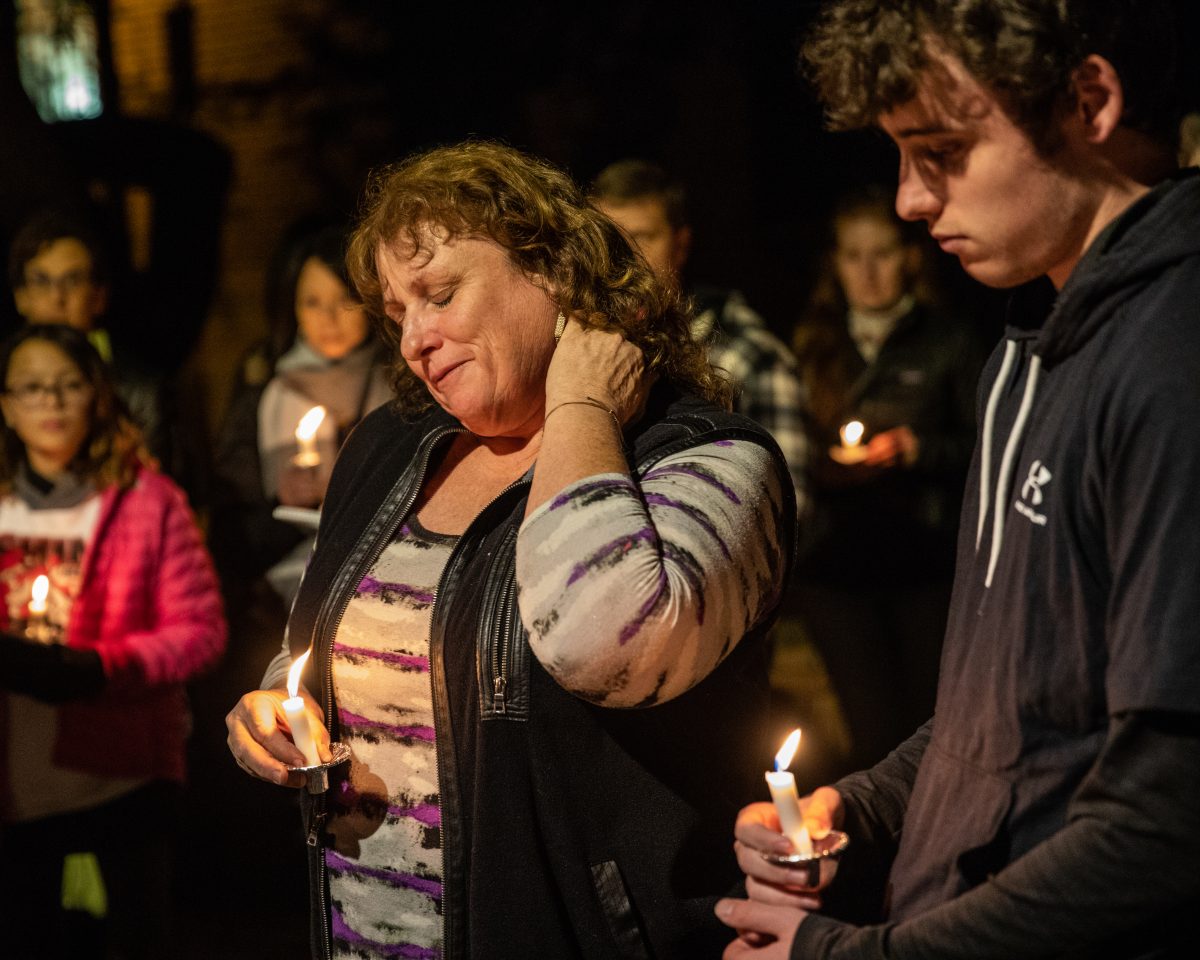
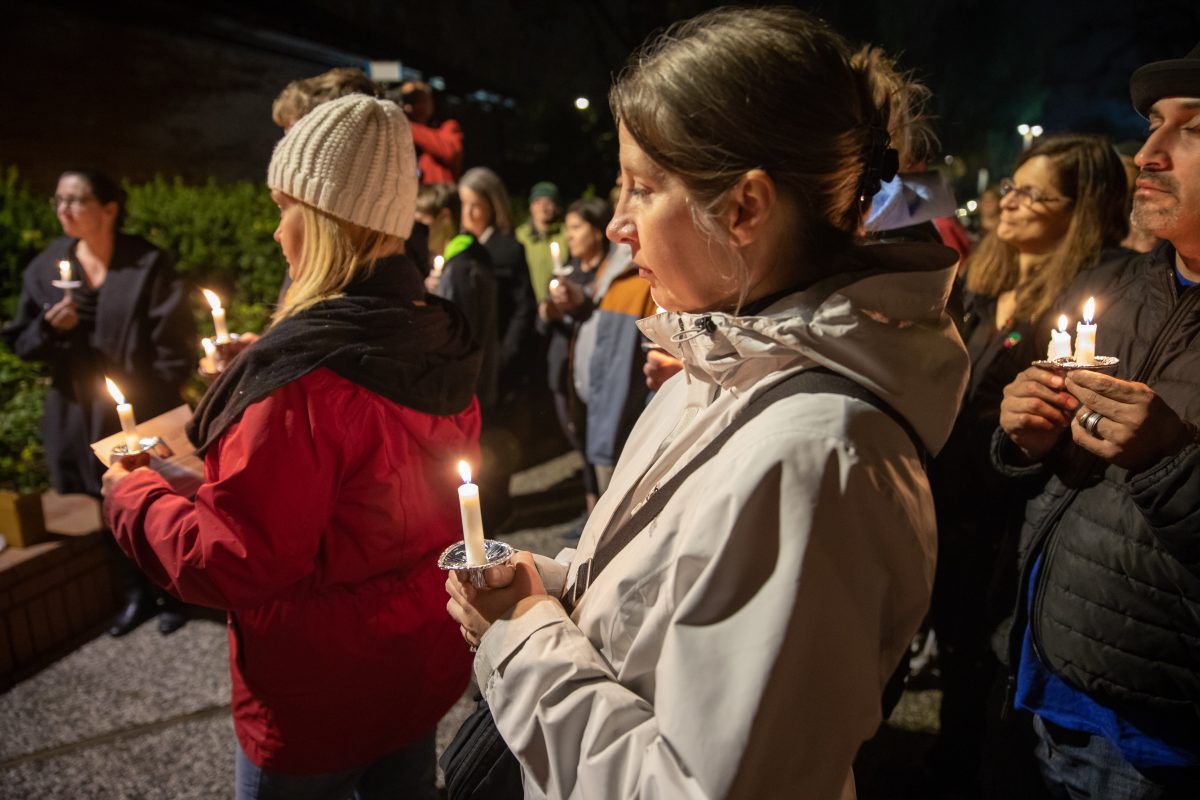
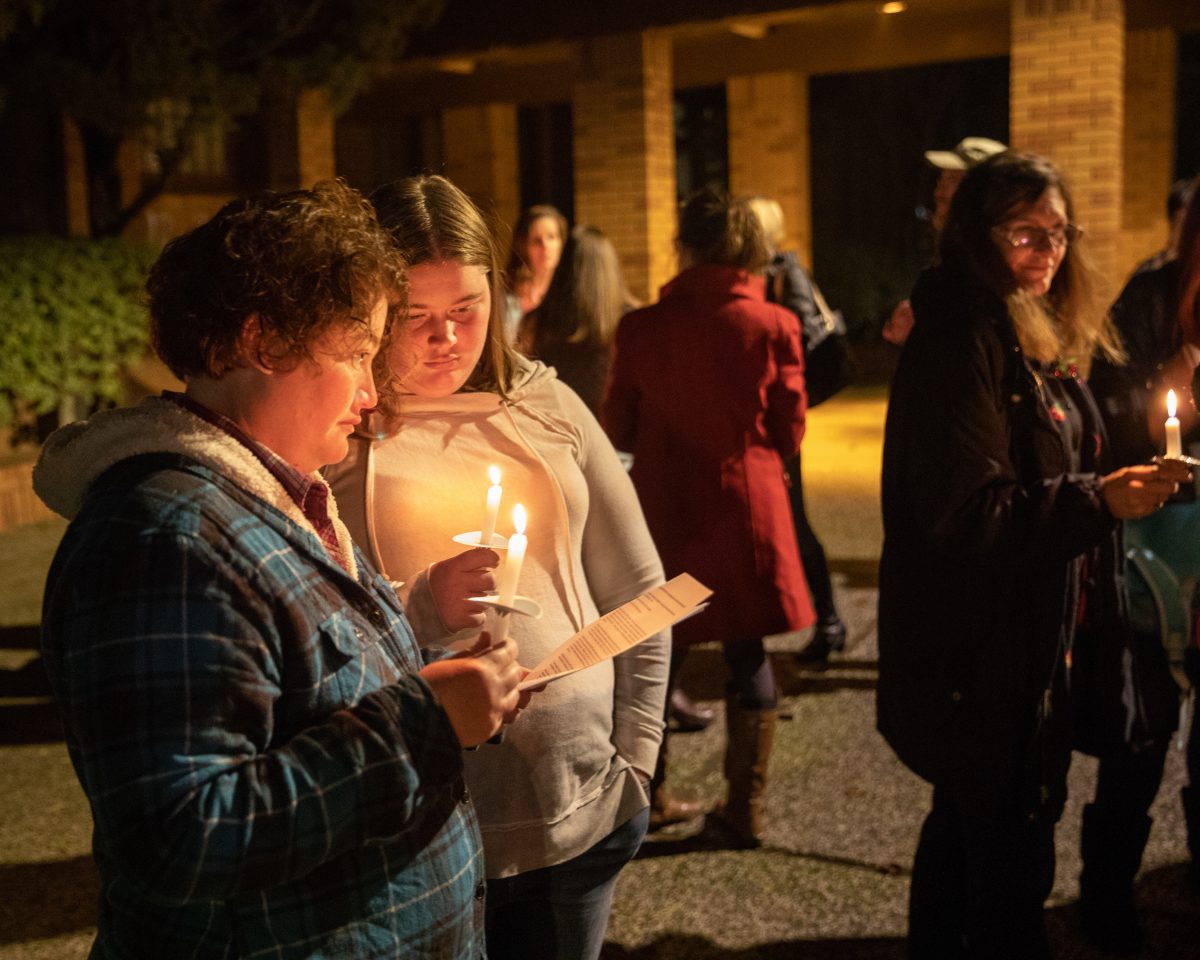
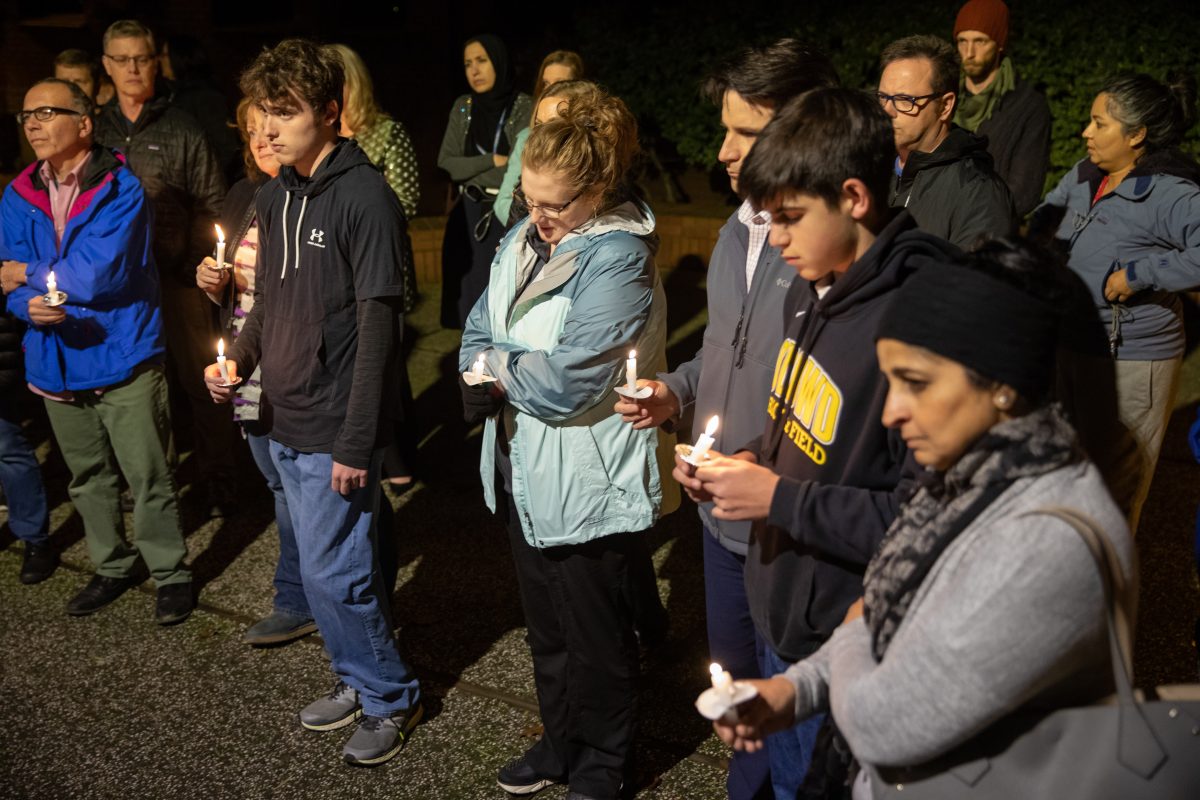
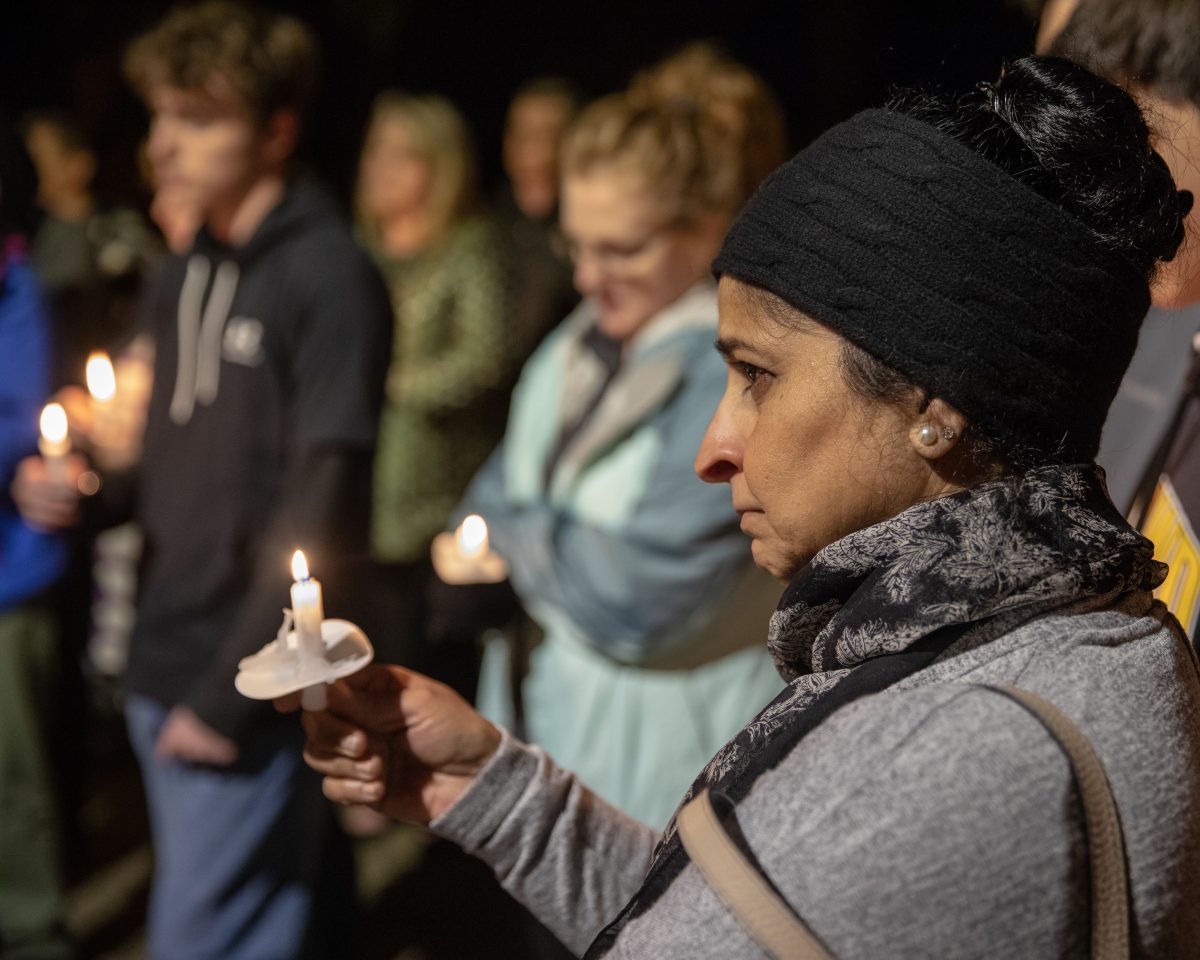






Had no idea these types of private schools exist, for children that local school districts apparently cannot handle.
If they’re shut down, where will these kids go? Home schooling?
Yes, there are many non-public schools (NPSs) throughout the state. Students in special education are placed there if the school district cannot meet their educational needs as specified in their Individualized Education Plan (IEP) in a public school setting. (Not necessarily because the public school “cannot handle” them.) Because these schools are segregated, they are only supposed to be used as a last resort. The legal requirement (under federal and state law) is to place students receiving special education services in the Least Restrictive Environment (LRE), meaning students with disabilities are to receive their education, to the maximum extent appropriate, with nondisabled peers and that special education students are not removed from regular classes unless, even with supplemental aids and services, education in regular classes can’t be achieved satisfactorily.
Home schooling is also isolating; so, it is not an option unless there are no other alternatives. It is typically used when a child can’t be in a regular school setting due to medical reasons.
Thanks, Eric.
I’m envisioning a scenario in which these schools shut down due to costs associated with liability, and with cash-strapped districts not able to pay what it would take to keep them open.
As long as there’s a demand, they will exist, because every student is entitled to an appropriate education at no cost to the parents. School districts are reluctant to place in these settings because they are expensive and it comes out of their special education budget. It’s often parents who push for them, even when the school district believes it can meet the student’s needs in a public school setting.
It might become even more expensive, due to liability costs. If parents are pushing for them, but districts believe they can meet the need in a public school setting (as you say), perhaps districts will ultimately be forced to say “no” to those requests.
However, the districts would then presumably have to absorb the liability costs, directly. Not sure how that works, since I’m guessing that it’s different to sue a district, vs. a private entity.
I’m wondering if Eric knows that most people in Northern CA that homeschool are not doing it because the kids “can’t be in a regular school setting” but in most cases because they are super religious and don’t like the left of center schools (and don’t want their kids watching porn on phones that other kids bring to school, even other “religious” schools)…
After being out there last night, I don’t know that I’m comfortable having this conversation. There are people in this community really hurting. That said, based on how some of the people described their lives, there is no way they could homeschool in this situation. They talked about how isolated they were as it was, now you’re take away those few hours of respite and put the onus of education on them, I’m not expert, but there is no way that is going to work.
I may have been unclear. I’m not talking about that kind of home schooling. Home schooling (or, more accurately, Home and Hospital Instruction) for students in special education is provided by the school district, not the parents, for kids in special education who can’t be in a regular school setting, most often because of temporary or long-term medical issues.
If they’re shut down? They are in violation of state law, this school should be shut down. A kid a died. Really Ron?
I didn’t say that it shouldn’t be shut down. Nor did I comment on the tragedy.
My comment was directed at possible, longer-term outcomes resulting from the challenges and liabilities. In other words, the bigger picture – beyond this individual tragedy.
That’s not how it came across to me. It came across to me – if they shut it down, what happens. Not this is really f-ed up, the school must be shut down, now how do we fix this problem.
Forgetting what (who, actually) prompted you to respond, you raise an important point…where do we go from here…
The easy one… all of those who were in responsible charge, in real time, making decisions, should never, ever, be near children/young adults again… at least professionally. Period… will leave to others whether criminal or civil charges should be pursued.
The hard one… how do we deal with and support those kids/adults who are ‘different’, particularly when we don’t fully understand why/how they are ‘different’… they need help/support, as do the members of their families. I see no “magic wands”. I see pain, and in this case a tragic (and probably unnecessary/wrongful) ‘too early’ end of a life.
Wish I had “solutions”, but beyond my ken and pay grade…
I’ll grieve with the family and friends… and support realistic changes to prevent a recurrence of such a tragedy… if you know them, support the survivors of the young man, I plead… I don’t know them, so my efforts might well come across as hollow, at best.
I’m going to request that conversations on this thread be civil and respectful of the fact that this is discussing a death that occurred in our community. Please be aware that many people read the Vanguard and you may say something that is inadvertently thoughtless or may appear unsympathetic. This is not the place to argue about things at this time.
The ‘school’ reminds me a lot of things I saw @ Families First… was glad to see that facility razed.